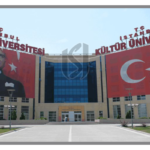
What is the difference between master’s and doctorate courses in Turkish universities?
- هلدینگ ترکیه با ما
- می 1, 2023
- BlogEN
- Doctoral degree in Türkiye, Master's Degree turkiye
- 0 دیدگاه
Higher education is a significant aspect of human resource development, and it plays a vital role in shaping the future of individuals and society. In Türkiye, as in most other countries, the higher education system has two levels: undergraduate and graduate. Graduate programs are further divided into two categories: master’s and doctoral degrees. This article will explore the differences between master’s and doctoral programs in Turkish universities.
Master’s Degree Programs: Master’s degree programs in Türkiye typically last two years and require completion of 120 ECTS credits. The programs aim to provide students with advanced knowledge and skills in a particular field of study. Master’s programs usually consist of coursework, seminars, and a thesis. The coursework is designed to help students develop their theoretical and practical knowledge in their chosen field of study. The seminars enable students to interact with professionals and experts in their respective fields. The thesis is a research-based project that allows students to apply the knowledge they have gained to a specific problem or issue.
Doctoral Degree Programs: Doctoral degree programs in Türkiye are typically more research-oriented than master’s degree programs. They typically require at least three years of full-time study and the completion of 180 ECTS credits. Doctoral programs in Türkiye aim to provide students with a deep understanding of a particular field of study and enable them to make significant contributions to their respective fields. The programs usually consist of coursework, seminars, and a dissertation. The coursework is designed to provide students with a solid theoretical foundation in their chosen field of study. The seminars allow students to interact with experts in their respective fields and develop their research skills. The dissertation is a significant research project that makes an original contribution to the field.
Differences between Master’s and Doctoral Programs: The primary difference between master’s and doctoral programs in Türkiye is the level of depth and research. Master’s programs are generally more focused on coursework and developing a theoretical and practical understanding of a particular field of study. Doctoral programs, on the other hand, are more research-oriented and require students to make a significant contribution to their respective fields.
Another significant difference is the time required to complete the programs. Master’s programs in Türkiye usually last two years, while doctoral programs typically require at least three years of full-time study. This difference in time reflects the different levels of depth and research required for each program.
The requirements for admission to master’s and doctoral programs in Türkiye also differ. To be admitted to a master’s program, students must have completed an undergraduate degree in a relevant field and meet the minimum GPA requirements. Doctoral programs usually require students to have a master’s degree in a relevant field and meet specific research requirements.
In conclusion, master’s and doctoral programs in Turkish universities are different in terms of their focus, duration, and admission requirements. Master’s programs are more coursework-oriented and require less time to complete, while doctoral programs are research-oriented and require more time to complete. The admission requirements for doctoral programs are usually more stringent than those for master’s programs. Both master’s and doctoral programs are essential for human resource development and play a significant role in shaping the future of individuals and society
Admission to Turkish Universities.
Is admission to Turkish universities competitive for foreign students?
Türkiye is an increasingly popular destination for international students, thanks to its high-quality universities and affordable education. Every year, thousands of international students apply to universities in Türkiye, hoping to secure a place in one of the country’s top institutions. But is admission to Turkish universities competitive for international students? In this article, we will explore the admission process for international students in Türkiye and answer this question based on the latest information and Google-defined standards.
Admission Process for International Students in Türkiye:
The admission process for international students in Türkiye varies depending on the university and the program of study. However, there are some general requirements that all international students must meet to apply to universities in Türkiye.
1.Language Proficiency: International students must demonstrate proficiency in the language of instruction for the program they are applying to. In most cases, this will be Turkish or English. Students can take language proficiency tests such as the TOEFL, IELTS, or YDS to demonstrate their language skills.
2.Academic Qualifications: International students must have a high school diploma or equivalent qualification to apply to undergraduate programs in Türkiye. For graduate programs, students must have a bachelor’s degree or equivalent qualification in a related field.
3.Application Process: Students must submit an application to the university they wish to attend. This usually includes a completed application form, academic transcripts, language proficiency test scores, a personal statement, and letters of recommendation.
4.Visa and Residence Permit: International students must obtain a student visa and a residence permit to study in Türkiye. The visa application process can take several weeks, so students are advised to apply early.
Is Admission Competitive for International Students?
The answer to this question depends on the university and the program of study. Some universities in Türkiye are more competitive than others, and some programs of study are more popular than others. In general, admission to top universities in Türkiye, such as Bogazici University and Bilkent University, can be highly competitive, with acceptance rates ranging from 5% to 20%.
However, admission to other universities and programs of study may not be as competitive. For example, universities that offer programs in fields such as engineering and medicine tend to be more competitive than universities that offer programs in humanities and social sciences.
In addition, some universities in Türkiye have specific quotas for international students, which can make admission less competitive. For example, Istanbul University has a quota of 1,000 international students per year, while Sabanci University has a quota of 25% of its total student population.
In conclusion, admission to universities in Türkiye can be competitive for international students, especially at top universities and in popular programs of study. However, admission is not uniformly competitive across all universities and programs of study. Therefore, it is important for students to research universities and programs of study that best fit their academic and personal goals and to apply to multiple universities to increase their chances of admission.
You can contact the academic department (with us) to get more detailed advice on your academic matters


یک دیدگاه ارسال کنید